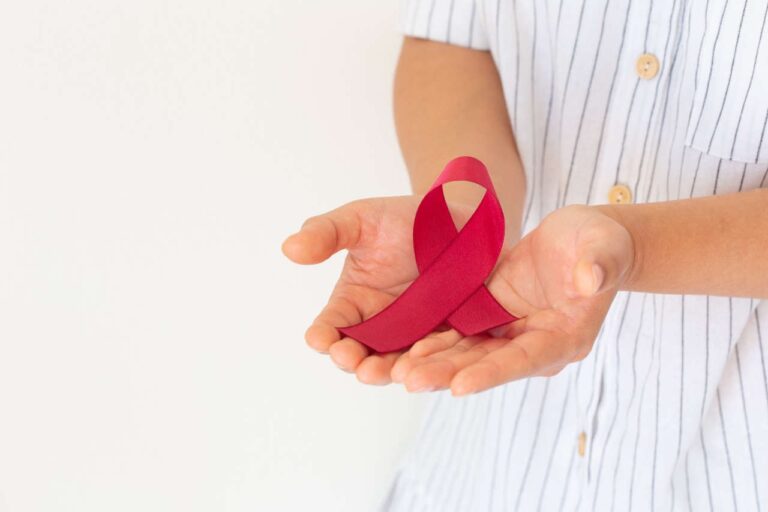
Hable con un especialista en quimioterapia
¿Qué es cabozantinib?
Cabozantinib (pronunciado [ka boe ZAN ti nib]) también se conoce por los nombres comerciales Cabometyx o Cometriq. Este medicamento es un tipo de quimioterapia.
Cabozantinib pertenece a una clase de medicamentos conocidos como inhibidores de la tirosina quinasa (TKI), que actúan impidiendo que una proteína anormal provoque la multiplicación de las células cancerosas. Esto ayuda a ralentizar o detener la propagación de las células cancerosas.
¿Qué es la quimioterapia?
Quimioterapia Es un tratamiento contra el cáncer en el que se utilizan ciertos medicamentos para destruir las células cancerosas. Estos medicamentos suelen ser sustancias químicas citotóxicas que son tóxicas para las células, restringen su crecimiento, impiden su división y, finalmente, las destruyen.
Protección contra la quimioterapia
El cabozantinib se considera un agente peligroso y, normalmente, estas pastillas están recubiertas por una fina capa de material. Si esta capa se daña, se retira, se abre, se derrite o se rompe, la sustancia química que contiene la pastilla puede causar daños en la piel al tocarla. Por lo tanto, es importante tomar las precauciones adecuadas al recibir, manipular, almacenar, administrar y desechar este medicamento.
Use guantes si toca este medicamento o evite tocar la pastilla por completo utilizando la tapa del frasco para tomarla y colocarla directamente en la boca.
¿Cómo se utiliza cabozantinib?
Cabozantinib ha sido aprobado por la Administración de Alimentos y Medicamentos (FDA) para el tratamiento de carcinomas hepatocelulares (CHC), de células renales (CRC) y de tiroides. Actualmente, no está disponible en forma genérica, sino como marca. Cabometyx o Cometriq.
Formulaciones disponibles
Cabozantinib está disponible en comprimidos (Cabometyx) o cápsulas (Cometiq) que deben administrarse por vía oral. Aunque ambos fármacos son el mismo, no son intercambiables (no se puede sustituir Cabometyx por Cometriq). Están disponibles en cuatro concentraciones: 20 mg, 40 mg, 60 mg y 80 mg. Los comprimidos Cabometyx son amarillos, recubiertos con película, de forma circular (20 mg), triangular (40 mg) u ovalada (60 mg), sin ranura y con la inscripción "XL" grabada en una cara.
Cabozantinib se administra generalmente una vez al día, según el tipo y la gravedad del cáncer. Sin embargo, debe verificar la dosis y la frecuencia correctas con su médico.
Instrucciones de uso
Tome cabozantinib con el estómago vacío al menos 1 hora antes o 2 horas después de comer (si se toma demasiado cerca de una comida, podría no absorberse completamente). Trague la tableta/cápsula entera; no la triture, mastique, abra ni permita que se disuelva en la boca. Es mejor tomar este medicamento con un vaso lleno (aproximadamente 237 ml) de agua.
Hable con un especialista sobre la asistencia con los copagos
Dosis olvidada
Si se olvida una dosis, tómela lo antes posible, pero si faltan 12 horas para la siguiente dosis, omita la dosis y continúe con la siguiente dosis programada.
Almacenamiento
Guarde las tabletas y cápsulas en un lugar fresco y seco a temperatura ambiente y asegúrese de que el frasco esté bien cerrado.
Qué evitar al tomar cabozantinib
Mientras esté en tratamiento con cabozantinib, debe tomar ciertas precauciones. Informe siempre a su médico sobre cualquier medicamento que esté tomando. No tome ningún fármaco ni medicamento (ni siquiera medicamentos a base de hierbas o de venta libre) sin el consentimiento previo de su médico o farmacéutico, ya que pueden tener algunas interacciones significativas con cabozantinib.
Evite la toronja, el jugo de toronja y cualquier alimento o suplemento que contenga toronja o jugo de toronja durante la terapia, ya que también pueden interactuar con este medicamento.
Embarazo y Cabometyx
Se debe verificar el estado de embarazo antes de iniciar la quimioterapia en mujeres en edad fértil. Se debe utilizar un método anticonceptivo eficaz y evitar la lactancia materna durante el tratamiento y durante los 4 meses posteriores a la última dosis.
Efectos secundarios
Al igual que con cualquier otro medicamento, puede experimentar efectos secundarios al tomar cabozantinib. Tenga en cuenta lo siguiente:
- Es posible que no presente todos los efectos secundarios que se enumeran a continuación. Muchas personas podrían experimentar pocos o ningún efecto secundario.
- La gravedad de los efectos secundarios puede variar de persona a persona, así que no compare sus efectos secundarios con las experiencias de otras personas.
- La mayoría de los efectos secundarios mejorarán cuando se interrumpa el tratamiento.
- Estos efectos secundarios suelen ser fáciles de controlar, ya sea reajustando la dosis de capecitabina o usando medicamentos adicionales para tratar los síntomas. Consulte con su médico o farmacéutico para explorar las opciones disponibles.
- No oculte ningún síntoma; cuando sienta cualquier molestia no dude en comunicárselo a su médico o farmacéutico.
NotaEsta no es una lista completa de todos los efectos secundarios. Consulte a su médico si tiene alguna pregunta.
Obtenga asistencia para el copago de quimioterapia
Asistencia financiera para quimioterapiaAlgunos de los efectos secundarios más comunes del Capecitabine son:
Pérdida de cabello
Uno de los efectos secundarios más notorios de la quimioterapia es la caída del cabello. Esto ocurre porque la mayoría de las pastillas de quimioterapia, incluida la capecitabina, actúan sobre las células cancerosas que se dividen rápidamente, así como sobre las células sanas del cuerpo, como las células ciliadas. Sin embargo, el cabello suele volver a crecer una vez suspendida la quimioterapia. También pueden presentarse cambios en el color del cabello.
Osteonecrosis de la mandíbula (ONM)
Manifestaciones de ONJ puede incluir dolor de mandíbula; osteomielitis; osteítis; erosión ósea; infección dental o periodontal; llagas en la boca; asfixia, tos o arcadas al beber; dolor de muelas; dolor de mandíbula; ulceración o erosión gingival; dolor de mandíbula persistente o curación lenta de la boca o la mandíbula después de una cirugía dental.
Desequilibrio de líquidos y electrolitos
Pueden presentarse problemas de líquidos y electrolitos, lo que puede causar cambios de humor, confusión, dolor o debilidad muscular, ritmo cardíaco anormal, mareos o desmayos, ritmo cardíaco acelerado, aumento de sed, sensación de mucho cansancio o debilidad, falta de apetito, incapacidad para orinar o cambios en la cantidad de orina producida, sequedad bucal, ojos secos, malestar estomacal o vómitos muy fuertes o, en el peor de los casos, convulsiones. También es posible tener niveles altos de azúcar en la sangre. Los síntomas de un nivel alto de azúcar en la sangre incluyen confusión, somnolencia, aumento de sed, hambre, micción más frecuente, sofocos, respiración acelerada o aliento con olor a fruta.
Problemas de tiroides
Pueden ocurrir problemas con la tiroides, lo que resulta en cambios de peso, nerviosismo, excitabilidad, inquietud, debilidad, pérdida de cabello, depresión, hinchazón del cuello, incapacidad para concentrarse, problemas con el calor o el frío, cambios menstruales, temblores o sudoración.
Complicaciones cardíacas
Existe el riesgo de que cabozantinib cause presión arterial alta o baja. Generalmente, puede presentarse como dolor de cabeza o mareos intensos, desmayos o cambios en la visión. Sin embargo, con menor frecuencia, puede provocar coágulos sanguíneos, infartos, accidentes cerebrovasculares, tromboembolia venosa (TEV) o embolia pulmonar (EP) si no se controla. Los coágulos pueden presentarse como dolor o presión en el pecho, tos con sangre, dificultad para respirar, hinchazón, calor, entumecimiento, cambio de color o dolor en una pierna o un brazo, dificultad para hablar o para tragar. Por lo general, estos efectos secundarios deben controlarse con medicamentos para tratar la presión arterial alta.
Complicaciones del sangrado
Pueden ocurrir problemas de sangrado que incluyen hematomas; heces negras, alquitranadas o con sangre; sangrado de encías; sangre en la orina; tos con sangre; cortes que tardan mucho tiempo en dejar de sangrar; sensación de mareo, mucho cansancio o debilidad; hemorragias nasales; dolor o hinchazón; vómitos con sangre; vómitos que parecen posos de café; o un dolor de cabeza muy fuerte.
Síntomas parecidos a los de la gripe
Durante la terapia pueden presentarse sudoración, fiebre, escalofríos y posible dolor de garganta, los cuales pueden desaparecer por sí solos.
Los efectos secundarios menos comunes pueden incluir:
- Constipación
- Náuseas
- Vómitos
- Cambio en la capacidad de saborear
- Enrojecimiento, hinchazón, llagas o dolor en la boca.
- Pérdida de apetito
- Pérdida de peso
- cansancio extremo o debilidad
- Piel pálida y/o seca
- espasmos musculares
- Dolor en las articulaciones, brazos o piernas.
- Cambios en la voz o ronquera
- Cicatrización lenta de heridas
Consulte con un especialista en quimioterapia
Obtenga asistencia para el tratamiento de quimioterapiaPrecauciones
A menos que su médico lo apruebe, generalmente no se recomienda cabozantinib en:
- Pacientes que tengan alergia al cabozantinib o a cualquier componente de la formulación.
- Pacientes con insuficiencia renal grave.
- Pacientes con alto riesgo de perforaciones gastrointestinales y fístulas o diarrea grave. Si se presenta cualquiera de estos eventos gastrointestinales, se recomienda suspender inmediatamente el cabozantinib.
- Pacientes con alto riesgo de eventos trombóticos. Estos eventos incluyen infartos de miocardio, ictus isquémico, tromboembolia venosa (TEV) y embolia pulmonar (EP). Si se presenta alguno de estos eventos trombóticos, se recomienda la suspensión inmediata del cabozantinib.
- Pacientes con riesgo de hipertensión arterial.
- La presión arterial debe controlarse periódicamente.
- Se debe suspender el uso de cabozantinib inmediatamente si la presión arterial no se controla con el tratamiento.
- Pacientes con riesgo de osteonecrosis mandibular (ONM): Se debe suspender el tratamiento con Cabometyx durante al menos 28 días antes de cualquier procedimiento dental invasivo.
- Pacientes con cirugías o procedimientos programados. El tratamiento puede suspenderse al menos 21 días antes de la cirugía o procedimiento y puede reanudarse después. Consulte con su médico sobre cualquier cirugía o procedimiento programado.
Preguntas frecuentes
¿Es cabozantinib un agente quimioterapéutico?
Medicamentos de quimioterapia Se utilizan en el tratamiento de diversos tipos de cáncer. El cabozantinib destruye las células cancerosas. Por lo tanto, es un agente quimioterapéutico recomendado como opción de tratamiento para diversos pacientes con cáncer.
¿Cuál es el mejor momento para tomar cabozantinib?
Tome cabozantinib con el estómago vacío al menos 1 hora antes o 2 horas después de comer.
¿Cabozantinib está disponible como genérico?
Actualmente no está disponible como genérico. Solo está disponible en las marcas Cabometyx (comprimidos) o Cometriq (cápsulas).
¿Puedes tocar cabozantinib?
Los medicamentos de quimioterapia contienen sustancias químicas peligrosas para la salud. Por lo tanto, evite tocarlos. En su lugar, use guantes o vierta el medicamento directamente en la boca usando la tapa del frasco para evitar y minimizar el contacto directo.
REFERENCIAS:
“Cabometyx® (Cabozantinib): solo o en combinación con nivolumab”. Cabometyx, https://www.cabometyx.com/?gclid=CjwKCAjwiY6MBhBqEiwARFSCPn0fEOvosAuJ3MW_FrjNTmASB4YioNrbu7m8_VkEayYyQVFGsNen9hoCo7UQAvD_BwE&gclsrc=aw.ds.
CabozantinibEn: Lexi-drugs online [base de datos en internet]. Hudson (OH): Lexicomp, Inc.; 2016 [actualizado el 2 de noviembre de 2021; citado el 4 de noviembre de 2021]. Disponible en: http://online.lexi.com
CabozantinibEn: Respuestas a fondo [base de datos en internet]. Greenwood Village (CO): IBM Corporation; 2017 [citado el 4 de noviembre de 2021]. Disponible en: www.micromedexsolutions.com.
Cabometyx: Usos, dosis, efectos secundarios, advertenciasDrugs.com. (sin fecha). Recuperado el 4 de noviembre de 2021 de https://www.drugs.com/cabometyx.html.
Información destacada sobre la prescripción de CABOMETYX® (cabozantinib)… [Actualizado el 1 de enero de 2021; citado el 4 de noviembre de 2021]. Disponible en: https://www.accessdata.fda.gov/drugsatfda_docs/label/2021/208692s010lbl.pdf.













